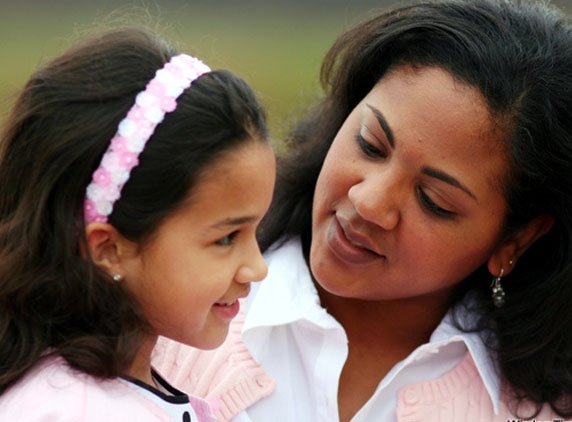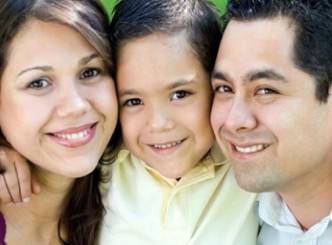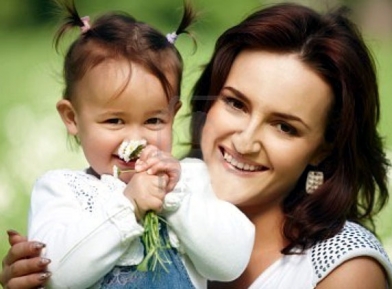
Children's day... for whatever reason, the celebrations are loved by kids... let them get indulged in their own celebrations, let us understand how to understand them better;
Each child is born with certain physical traits that underlie his basic personality. Many children become difficult because their "equipment" just isn't working right. As they struggle, they can become fussy, irritable, negative, or self-absorbed. The final shape of a child's personality is determined partly by how his parents and other caregivers relate to these physical traits. Challenging children can become more pleasant, flexible people. They can become easier to live with-less at odds with the world, more trusting and secure. Life with a difficult child, as you have seen in this book, doesn't have to be a perpetual battleground.
This is a quick guide to figuring out your child's personality type and your reaction to it. It should help you identify which pattern your child most closely approximates, even though most youngsters won't - as is always true in life - fit neatly into one category or another.
Keep in mind that challenging children may vary greatly in day-to-day moods and outlook. One moment, they appear mature, respectful, empathetic, compassionate. Later that same day, they are crawling under tables, whining, clinging, throwing tantrums, and bossing everyone around. So don't take any one piece of behavior as a way of labeling your child. Look for patterns over a period of time. And, above all, don't be discouraged if your child appears to be making no progress at all! In time, he will. Sometimes it can just be hard to see.
The Highly Sensitive Child
Children who are highly sensitive tend to exhibit several types of behavior. Among the most common patterns are fearfulness and caution. In infancy, a sensitive baby dislikes new routines and is especially clingy in new situations. He restricts his range of exploration and avoids being assertive. In the early years, this child may be plagued with excessive fears and worries and display shyness when trying to form friendships and interact with new adults. In late childhood, he may feel anxious or panicky and have mood swings. He may become depressed. In general, he tends to be inhibited, reactive, and detail-oriented. He becomes easily overloaded by emotional or interpersonal events. The highly sensitive child also tends to be very perceptive. He senses every nuance and subtlety of his world and is also quite sensitive to the feelings of other people; he can "read" other people through their expressions, body language, and voice tone. Because sensitive youngsters are so attuned to the world, they tend to focus on the details of what they see, hear, and experience.
The patterns described here may be inadvertently intensified by parents or caregivers who respond to the child by vacillating - for example, by being overindulgent and overprotective some of the time and punitive and intrusive at other times. The best approach is for parents and caregivers to provide consistent empathy; very gentle, but firm, limits; and gradual and supportive encouragement to explore new experiences.
The Self-Absorbed Child
The self-absorbed child may appear apathetic, easily tired. As an infant, she may seem quiet, perhaps even depressed and uninterested in exploring people or objects. She may not respond quickly to touch, sound, or other stimuli. As a preschooler, she may sit passively rather than explore her world. More than most toddlers, she may appreciate familiar routines. As an older child or a teenager, she may appear self-absorbed and disinterested in the world. However, her powers of fantasy and capacity for independence may become assets as she matures.
It is all too easy for parents to neglect or give up on a self-absorbed child. She requires intense input from them and other caregivers and teachers to attract her interest and capture her emotional engagement. If people close to her are low-key or laid-back in voice tone and speech rhythm, this child is likely to tune them out. Parents and others need to reach out energetically, responding to her cues (however faint) to help her engage, attend, interact, and explore the world.
The Defiant Child
The defiant child can be negative, stubborn, controlling. He often does the opposite of what is expected or asked of him. He faces difficulty with transitions and prefers repetition or slow change. He tends to be perfectionist and compulsive.
As an infant, this child may be fussy, difficult, and resistant to changes in routine. As a toddler, when negative behavior is common to all children, he may be even more angry, defiant, and stubborn than most children his age. This child, however, can show joyful exuberance at certain times. A defiant older child or adult may be argumentative and frequently engage in power struggles. He may use passive defiance as a coping strategy, or he may try to avoid difficult situations. In contrast to the fearful, cautious person, he doesn't become fragmented when overwhelmed, but reacts instead by trying to control his world as tightly as possible. When moderated, this child's perfectionism and boldness may well help him as a student or in later work.
It is tempting to respond to the defiant child by becoming angry, intrusive, and punitive. While this is an understandable response to infuriating behavior, it is likely to intensify the defiant child's behavior. Caregiver patterns that are soothing, empathetic, and supportive of slow, gradual change (and that avoid power struggles) tend to enhance the defiant child's flexibility.





















